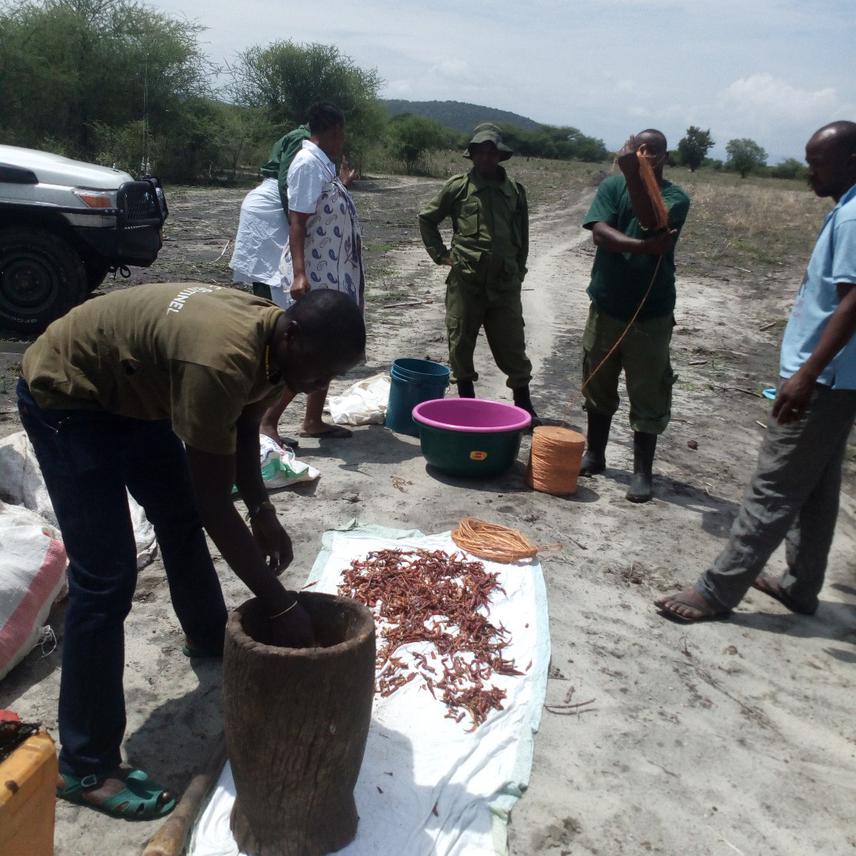Francis Moyo
Other projects
13 Nov 2013
Livelihoods Impacts of Payment for Conservation Initiatives under Climate Change in Tanzania: A Case of Wildlife Management Areas
This project seek to upscale the use of spotlights and chili bombs for crop protection in Tarangire-Manyara ecosystem. The project engages Burunge WMA communities and conservation NGOs operating in the area to raise awareness and train rural dwellers to use ecologically friendly techniques to protect crops against elephants raids. By imparting knew knowledge and skills on crop protection against elephants raids, the project is expected to deter use of lethal strategies such as poisoning of elephants, and hence promote co-existence of human and wildlife populations. The project also train villagers to grow chili for bomb-making, and for sale to generate cash income. Upon its successful completion, the project is expected to have notable impacts on food security, enhanced elephants and wildlife conservation, and diversification of income sources for rural dwellers in the project area.

Preparing chili for bomb making.
This project is a continuation of the five year research projects in the Tarangire-Manyara ecosystem. Also funded by Rufford Foundation, previous projects revealed that conservation efforts in the area has resulted to an increase in the number of elephants, leading to the escalations of human-wildlife conflicts. The increase in elephant populations led to increase in crop raids incidences, which threatens rural dwellers’ food and livelihoods security. It discourage rural people to engage in conservation, and the lack of education on proper crop protection techniques led them to resort to lethal techniques such as poisoning of elephants to protect their crops.
The research however discovered small scale use of ecologically friendly techniques to deter elephant’s raids on crops. Conservation NGOs operating in Tarangire-Manyara ecosystem have successfully designed and tested the use of spotlights, chili bombs and chili fences to protect crops against elephants. Yet, despite the proved effectiveness of these novel techniques, rural people continue to suffer crop losses because the knowledge is not being transferred to the affected people. Rural people thus continue to depend on NGOs staff who are time bound and budget constrained.
This project therefore aims to empower rural people to take control crop protection by training them on how to make and use of chili bombs, and spotlights. The projects’ theory of change hinges on the use of ‘field laboratory’ to inject knowledge to the affected people to foster community development and conservation. The project target to reach all adult males and females in ten villages. Women, in particular, are encouraged to participate, because most of the farms are within homesteads, and women are home most of the time. Therefore empowering women with the right knowledge and tools will increase chances of success.
Trainers use video clips and fliers, with emphasis on practical examples. After each training session, participants form groups and practice what they have learnt. Spotlights are mainly bought in the local markets, and trainers teach local people how to identify best spotlights in the market, targeting the ones which can be recharged by solar power. Agriculture experts train local people to grow chili for bomb making and sale for cash income generation.
Value chain analysis for chill is conducted to identify potential products and areas for value addition at the local level. Upon completion, the project expects improved food security, enhanced conservation, and diversification of income sources for people in the project area.